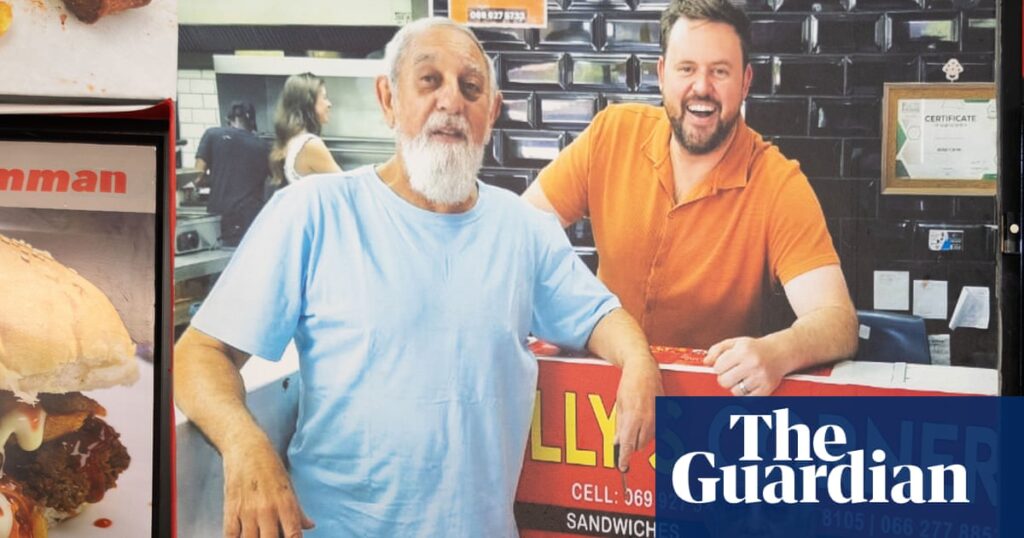
Solly’s Corner, a bustling fast food restaurant in downtown Johannesburg, serves as a vibrant testament to the rich tapestry of South African cuisine. Amidst the sizzling slabs of hake and golden chips, food influencer and radio DJ Nick Hamman steps behind the counter, greeted warmly by Yoonas and Mohammed Akhalwaya, the father-son duo running this family business in Fordsburg, a historical hub of South Asian and Middle Eastern culture.
With over 200,000 followers on Instagram and TikTok, Hamman has dedicated the past two years to promoting food businesses across South Africa, celebrating the country’s diverse culinary landscape and fostering unity among its often divided cultures. Each of his videos begins with a cheerful introduction, “I’m Nick Hamman!” followed by his culinary quest of the day, whether it be seeking the best burgers, boerewors sausages, or breyani (biriyani). From mala mogodu intestine stew to magwinya doughnuts with liver, Hamman’s enthusiasm for local flavors knows no bounds.
“I started seeing food as a common theme in binding all of what I was interested in: culture, family, history, heritage,” Hamman explains. “I believe food is political. It’s deeply tied to memory, nostalgia, and history, telling the story of our country in a very special way.”
The Cultural and Historical Significance of Solly’s Corner
Founded in 1956 by Yoonas’s mother, Khadija, Solly’s Corner has weathered numerous challenges, including eviction in 1968 under the apartheid government’s Group Areas Act, which enforced racial segregation. The restaurant also survived the Covid-19 pandemic and a devastating electrical fire in 2021. “We’ve had our ups and downs, but we thank God above,” Yoonas reflects. Mohammed adds, “It’s an absolute blessing feeding people.”
Hamman’s videos highlighting Solly’s Corner have garnered over 1.7 million views across TikTok, Instagram, and Facebook since October 2023. The Akhalwayas have seen a 50-60% increase in business, leading them to honor Hamman with a wall mural and a burger named after him. “Nick, also, he’s from the man upstairs,” Mohammed says with warmth.
Exploring New Culinary Frontiers in Alexandra
About 12 miles north, in the township of Alexandra, another culinary story unfolds. Gift Sedibeng, a young chef, founded Siga Culinary restaurant in 2018 in his parents’ old house after working in a Mexican restaurant in Texas. Sedibeng aims to broaden his community’s palate with fusion dishes like the “MexiKasi” kota burrito, a creative twist on traditional kota street food.
“I like it when you make a meal for a person and they express their love … It makes my heart melt,” Sedibeng shares. Planning to open a culinary school next year, he notes that about 60% of his customers come from outside Alex, helping to reshape perceptions of the area. “Crime is still there, but it’s not as bad as before,” he reassures.
Hamman hopes his videos will stimulate local economies: “Places like Alex, where there is brilliance … if we don’t present these spaces in ways that entice people to come, the money’s never going to flow into these areas, and they won’t get a fair chance to develop.”
Unveiling the Hidden Culinary Culture of Madala Hostel
One of the most notorious areas in Alex is Madala hostel, originally built by the apartheid government for male migrant workers. Despite its grim reputation, Hamman highlights the vibrant food culture thriving within its walls. Among goats grazing and rats scurrying, the rich aroma of barbecued meat fills the air.
A man known as Mugabe prepares shisanyama, a traditional Zulu braai featuring beef steak, liver, heart, and sausage, accompanied by chakalaka salad. Meanwhile, Mthunzi Ngema has been stewing inyama yenhloko, tender cow’s head meat, since 1996. Wandile “Wax” Dhlamini, an Alex local, guides visitors through Madala, celebrating the culinary traditions. “In Zulu ceremonies, we slaughter the cow and feast on all its parts,” he explains. “More than anything, it’s a culture.”
Hamman’s journey through South Africa’s culinary landscape not only highlights hidden gems but also fosters a deeper understanding of the country’s rich cultural heritage. As he continues to explore and share these stories, Hamman’s work underscores the power of food to unite and uplift communities.






